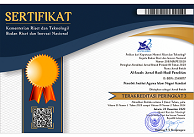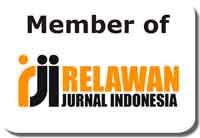Sakral dan Profan dalam Ritual Life Cycle : Memperbincangkan Fungsionalisme Emile Durkheim
Abstract
Abstract
In various societies, ritual manifest in almost all stages of human
life. It starts from the conception period; birth, childhood,
marriage, death, even after the man was die. With the ritual, people
try to bring the world and at the same time separate the sacred and
the profane one. This paper shall discuss the life cycle rituals in
society in Emile Durkheim’s theory of functionalism. In Durkheim’s
point of view, society has two sides in their life; time to work and
time celebrate the sacred ritual. The dualism of life is what
Durkheim called "The sacred" and "The profane". Durkheim
considers The Sacred is everything a superior, powerful, and in the
normal circumstances, it untouched and honored. Instead of the
profane is part of everyday life and mundane. Although the function
of ritual is to approach the sacred One, there are social functions
within. Therefore, it has the social value in the sense it could
strengthen social solidarity among community members. Life cycle
rituals provide facilities for every person to feel the religious
emotion and feel the presence of the Sacred. Ritual in some
cultures, not only a religious obligation but also running efforts to
achieve social cohesion as part of a community in which he lives.
Keywords: Ritual Life-cycle, Sacred and Profane, Emile
Durkheim, Funcsionalism
Full Text:
UntitledDOI: http://dx.doi.org/10.31332/ai.v9i1.178
Copyright (c) 2015 Al-Izzah










